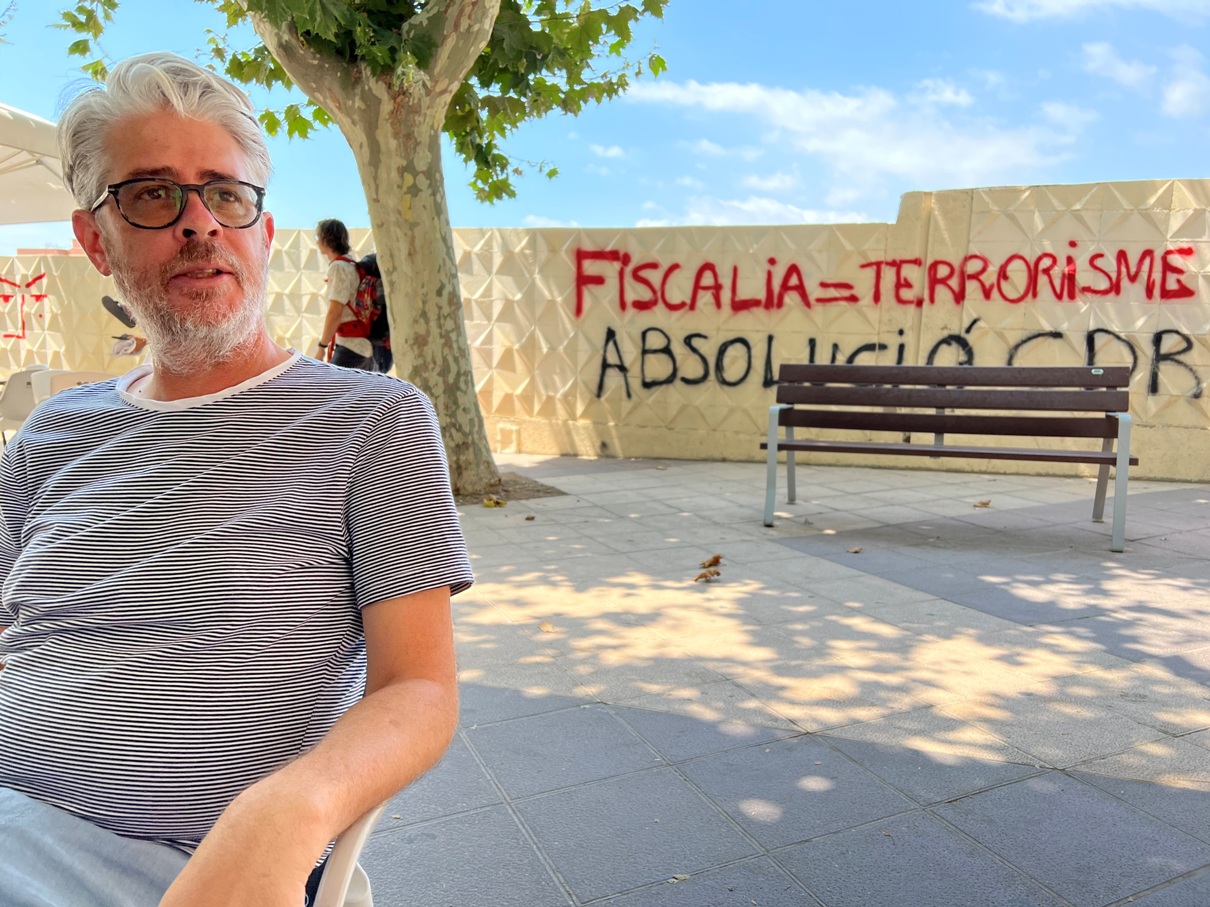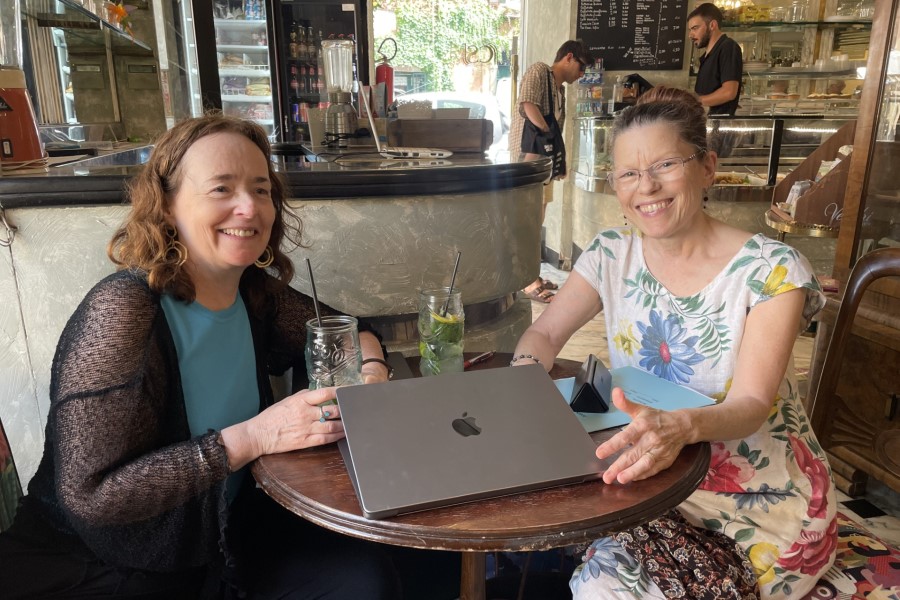JCU Welcomes New Communications Professor Anthony Stagliano
Professor Anthony Stagliano joined JCU’s Communication and Media Studies Department in Fall 2023. He is a media theorist and filmmaker, whose research concerns creative interventions into technologies of surveillance, biometrics, and control. Professor Stagliano is teaching Foundations of Digital Video Production and Introduction to Visual Culture in Fall 2023.
Tell us about your background.
I was born and raised in San Diego, California, and have lived in many places since then, including Prague, Barcelona, Chicago, New Mexico, and now Rome.

Andrew O’Hehir of Salon magazine described your 2007 feature film FADE as an “intriguing blend” of “Lynchian nightmare, lo-fi B-movie aesthetic and the obsessive, claustrophobic atmosphere of Memento” with “impressive cinematography and editing” and a “nerve-jangling modernist score” that “helps breed an atmosphere of dread.” How did you come up with the idea for this film?
A bit of the plot comes from a real but rare form of insomnia, and a bit comes from experiences I had as a child, when my own father was ill with cancer. I combined those “real” elements with an interest in tweaking narrative logic, and that’s how Fade came to be.
In your current projects, you are making films in collaboration with nonhuman performers (everyday objects) and co-conspirators (automated surveillance, traffic, and weather cameras, algorithmic imaging and mapping, bots). What was your goal?
The goal with such work is to pursue the same concerns with atmosphere, mood, and altering the norms of narrative as I was engaged in with Fade, but to do so via everyday, mundane forms of audiovisual production, to investigate the creative and critical possibilities available in paying attention to those images and sounds.
Tell us about your monograph Disobedient Aesthetics, forthcoming from University of Alabama Press.
Disobedient Aesthetics argues that the widespread forms of algorithmic control we find ourselves surrounded by admit creative alteration as a form of disobedience and resistance. That is, there is an aesthetic dimension to algorithmic control (it designs our world in a certain way) and, likewise, there is an aesthetic dimension to research into how to unravel it.
How do you reconcile being a filmmaker, media artist, and scholar?
Ultimately, I view all three activities as different ways of engaging the same questions and concerns. At times, it is clear that a scholarly project is necessary to get at what I am trying to say, and at other times, a creative project is more apt.
You have a B.A. in Classics, an M.A. in English, and a Ph.D. in Rhetoric. What would you say to students who are being dissuaded from pursuing degrees in liberal arts subjects in favor of more “practical” fields?
I would say that the distinctions between them are not as clear as we are led to believe. The skills, habits of thought, and critical and creative capacities emphasized in the liberal arts are needed on an everyday basis in “practical” fields as well. Conversely, especially with respect to rhetoric, the liberal arts themselves are very much “practical” in the first place. Rhetoric is, if nothing else, a practice. The creative and critical study of media is as well.
How would you describe your teaching philosophy?
This would connect to the previous answer. My teaching philosophy is that we are learning–together–new ways to think about and enact the various media in our world. For students interested in becoming media makers, I help them develop an approach to their craft that is thoughtful and informed. For students who are interested in critical, theoretical, or otherwise “practical” careers that don’t primarily involve making media, I help them see that their work is itself creative, inventive, and all the better for being enacted consciously so.
In Fall 2023 you are teaching Foundations of Digital Video Production and Introduction to Visual Culture. What do you hope your students take away from these courses?
I hope they come out of these classes with a new way to see, hear, and think about the media that make up our world.
Tell us about the course Creative Coding that you will be teaching in Spring 2024.
Creative Coding is an exciting practice of art and design work that uses software. There are global networks of practitioners, as well as specific programming languages for artists and designers to develop code-based projects. The course will introduce students to this interesting world of coding for non-specialists in computer engineering.
What made you decide to accept a position at JCU in Rome?
A number of things. I am delighted for my family to be here in Italy, and especially in Rome. More than anything it’s because of John Cabot itself, since it’s a unique and exciting place to be.





